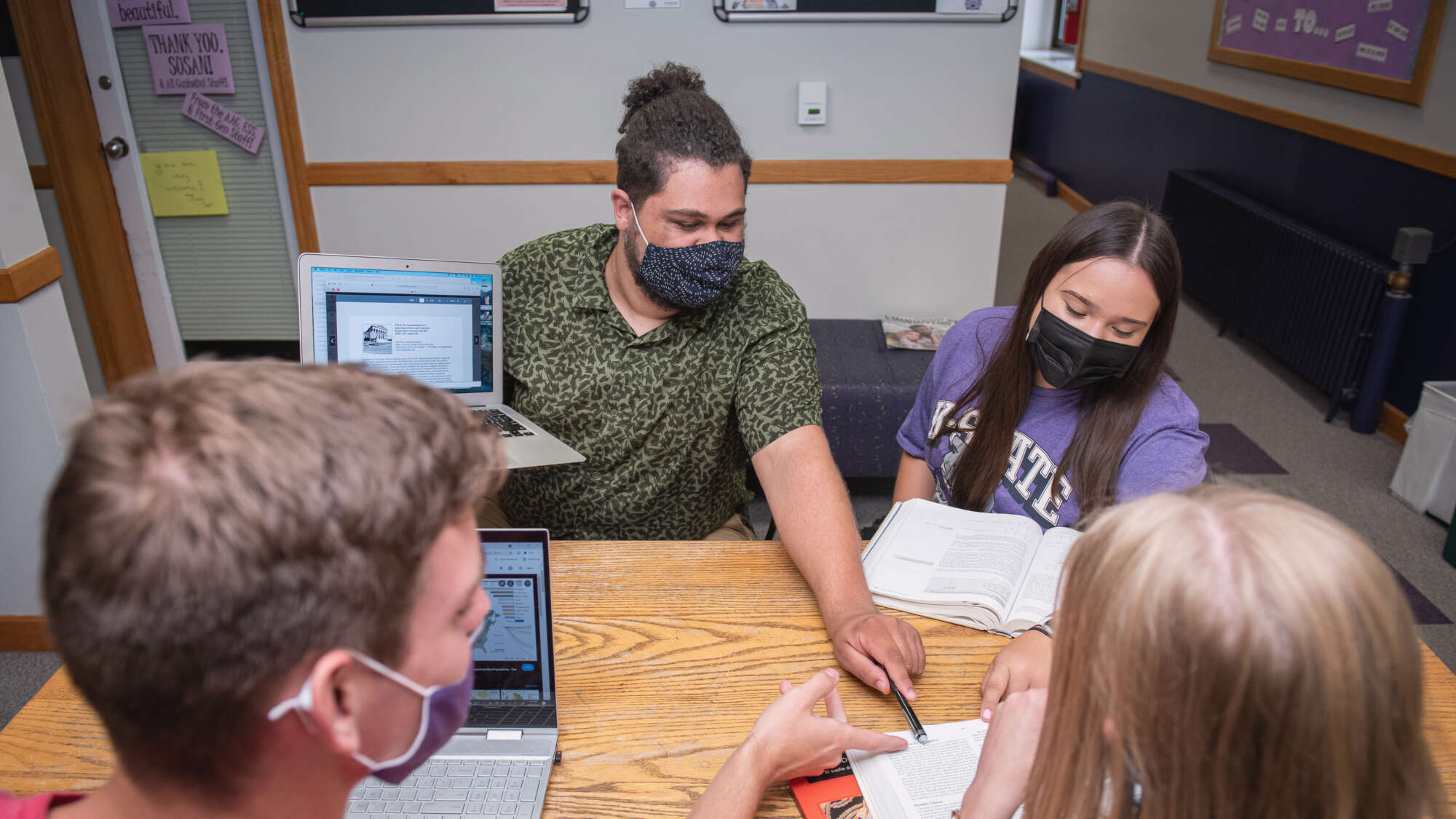K-State’s Academic Achievement Center equips students and faculty with essential resources.
Students thrive with a team of supporters behind them. That is why students who utilize Kansas State University’s Academic Achievement Center (AAC) are retained and continue their education at a rate of 91% — above the university retention rate of 86%. The AAC equips students with the resources and help needed to maximize the value of their education at K-State and beyond.
Serving more than 10,000 students each academic year, the AAC supports undergraduate and graduate students at all four K-State campuses. It offers academic coaching, tutoring, peer mentoring, first-generation student support, and more.
AAC Offerings
For Andrew Nordberg, a peer coach at the AAC, working at the center has given him a more well-rounded view of K-State. In addition to helping students find support and tools to succeed, Andrew says the AAC provides a sense of connection to other students with everyday experiences.
“Everything we do is to help the students who walk into our office find their way to success at Kansas State,” Andrew said. “Through this opportunity, I’ve realized that despite all our different backgrounds or different future aspirations, students have more in common than different, especially as we go through the college experience.”
The AAC serves students from all colleges and collaborates among colleges to create cohort-specific offerings such as a 1-credit academic reset course in the math department and academic coaching for students on academic warning in the College of Architecture, Planning, and Design. Another AAC offering, the Peer Mentoring Collaborative, ensures students in all majors have more transparent and equitable access to various peer mentoring experiences that help them find community and belonging.
Meeting growing needs
Each year, the AAC hosts over 10,600 interactions with students in tutoring and academic coaching, not including students who utilize online academic support tools. Yet there are limitations in how many students can be reached due to finite resources, funding and staffing.
Because the AAC services are funded through Student Governing Association allocation, grants and other limited funding, all support is subject to renewal and non-renewal each year.
Endowments and other financial gifts could not only sustain the AAC but also scale up accessibility of its services. The AAC at K-State remains at the leading edge of academic support for coaching and first-generation programming. However, the ability to be in this space is dependent on time, resources and staff.
Donor support for the AAC directly impacts a student’s retention, persistence and graduation, and equips them with transferable skills needed to excel in a diverse workforce.
